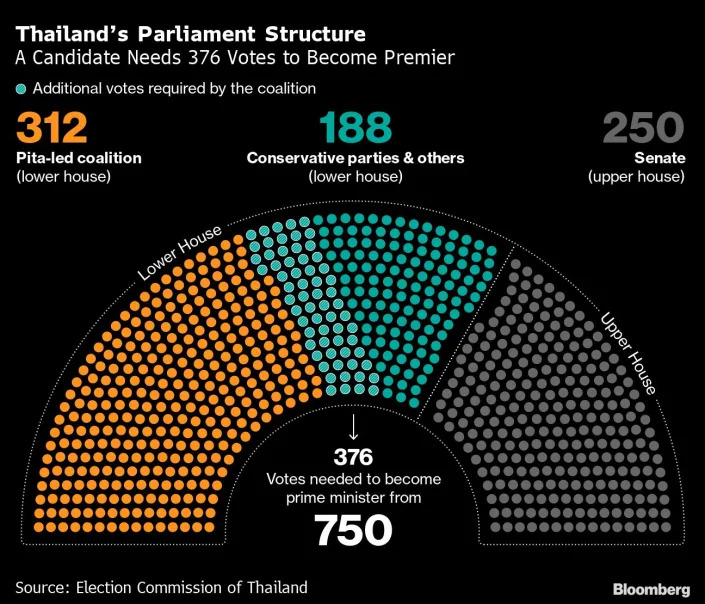Linda Lew
Mon, July 17, 2023



(Bloomberg) -- In the race to reduce carbon emissions, countries from the US to New Zealand are doling out incentives to spur electric-vehicle sales — tactics China used for years as it turned into the biggest EV market on Earth.
Beijing’s success is breathtaking. EVs accounted for a quarter of all passenger cars sold in China last year, far ahead of the roughly one in seven in the US and one in eight in Europe. And the pace is accelerating. HSBC expects the EV penetration rate in the world’s second-largest economy to reach 90% by 2030.
Including plug-in hybrids, China’s clean-car sales hit 5.67 million in 2022, more than half of all global deliveries. The country will account for about 60% of the world’s 14.1 million new passenger EV sales this year, BloombergNEF predicts.
It’s not just buyers. Manufacturing is booming too — Chinese brands account for about half of all EVs sold globally, HSBC analysts said in a recent note.
Sufficient infrastructure obviously helps with EV adoption. China, which has the largest charging network in the world, added 649,000 public chargers in 2022 alone, which is more than 70% of all installations done globally that year.
Encouraged by all the progress made, EV makers have swarmed China with new models, and a price war has flared this year as companies try to get ahead of rivals. Analysts expect some consolidation is looming for the industry in China.
Here’s a closer look at China’s carrot-and-stick approach to cultivating EVs:
The Carrots
Consumer Subsidies: A program that ran for a decade reimbursed EV Buyers with as much as 60,000 yuan ($8,375). Although the national subsidies ended in 2022, local governments in places like Shanghai continue to dole out rebates of up to 10,000 yuan.
Tax Breaks: A standard 10% tax levy has been waived for clean-car purchases under 300,000 yuan until 2025, and will return at 5% for 2026 and 2027. The tax break, in place since 2014, is estimated to amount to 835 billion yuan by the end of 2027. In the US, the Inflation Reduction Act, which passed last year, includes $270 billion in tax incentives for EV purchases and clean manufacturing and nearly $12 billion in loans to clean-energy projects.
Manufacturer Subsidies: Direct government support to EV makers helped many get up and running. While an overabundance of companies emerged, with more than 500 EV brands crowding the market in 2019, the effort nurtured successes like BYD Co. The Shenzhen-based company has become the best-selling brand in China, ending Volkswagen AG’s decades-long reign.
Infrastructure: Widely accessible, government-subsidized charging stations reduce drivers’ costs and ease any range anxiety. Charging standards are uniform, thanks to agreements with manufacturers, so everyone uses the same plugs. China had 6.36 million EV chargers at the end of May, more than anywhere else on the planet. A significant portion is part of the state grid, the fourth-largest provider behind private companies like Wanbang New Energy Investment Group Co. and TGood New Energy Co.
The Sticks
Gas Hurdles: Buying and owning gasoline-powered cars is less and less appealing. Cities are fighting congestion by limiting the number of cars on the road with measures such as lotteries for new license plates in Beijing and an auction system in Shanghai. Plates went for an average of 92,780 yuan at auctions in Shanghai during the first five months last year. EV drivers, meanwhile, can easily get a green license plate, showcasing their environmentally-friendly credentials. Green plates are increasingly prominent on city streets.
Production Penalties: China introduced a dual-credit system for the auto industry in 2017, which awards points for making clean cars and penalties for those with high fuel consumption. Cars from producers with negative scores may be taken off the market. To avoid punishment, manufacturers can buy credits from rivals with positive scores, like Tesla Inc. or BYD. It can get expensive. State-owned Chongqing Changan Automobile Co. lost 4,000 yuan in profit for each car sold in 2020 as it bought credits to avoid the penalty.
The Sales
Government Purchases: Some local governments converted their public transport and taxi fleets to 100% electric, and encouraged local agencies to procure electric or plug-in hybrids. The result was steady business for EV makers such as BYD, which also makes buses, and Guangzhou Automobile Group Co.
Bloomberg Businessweek




































